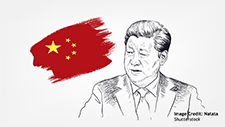Tomhetens filosofi
Lars Vargö
 Tomheten definieras på olika sätt. Det kan vara den verklighet, eller icke-verklighet, som existerar, eller inte existerar, bortom det individuella jaget. Det kan vara ett annat sätt att beskriva Gud på. Det kan också vara det stadium som krävs för att nå perfektion i utövandet av vissa konstarter eller kampsporter. Det är först när man behärskar alla detaljer så väl att man inte funderar på dem som man kan nå nya höjder.
Tomheten definieras på olika sätt. Det kan vara den verklighet, eller icke-verklighet, som existerar, eller inte existerar, bortom det individuella jaget. Det kan vara ett annat sätt att beskriva Gud på. Det kan också vara det stadium som krävs för att nå perfektion i utövandet av vissa konstarter eller kampsporter. Det är först när man behärskar alla detaljer så väl att man inte funderar på dem som man kan nå nya höjder.
Den japanska historien är en rik källa att ösa ur om man vill hitta exempel på denna ”tomhetens filosofi”. Den är starkt påverkad av de kinesiska filosofierna och religionerna, men under århundradenas gång har inte minst den japanska buddhismens olika grenar fått egna drag. Tomheten har blivit ett slags ideal för såväl konstnärliga uttryck som religiösa och filosofiska traditioner, ja, till och med för sociala umgängesmönster.
Tomhetens filosofi är en exceptionell skildring av zenbuddhismens utveckling i Japan och hur denna kom att påverka tänkandet hos den filosofiska Kyōtoskolans företrädare, och i synnerhet Nishida Kitarō. Ett gemensamt begrepp som såväl Kyōtoskolan som zenbuddhismen har använt sig av är just tomheten. Går den att förklara eller beskriva? Finns den? Hur unikt japansk, eller österländsk, är den?
Lars Vargö är fil.dr i japanologi och tidigare ambassadör i bland annat Japan och Sydkorea. Han är författare till en rad viktiga böcker om Östasien, senast Korea – En civilisation i kläm.
Preliminär utgivningsmånad oktober 2021
Bild och text tagen från Carlsson Bokförlags hemsida
Related Publications
-
Obeständigt – Kontraster i japansk kultur
In Japanese culture, contrasts have always been a key factor. This culture has fascinated the outside world for hundreds, if not thousands of years. But Japan is a country largely […]
-
Sweden Joins NATO: Implications for the Indo-Pacific
On March 7, almost two years after it first submitted its application and a year after Finland joined the North Atlantic Treaty Organization (NATO), Sweden officially became part of NATO’s […]
-
Kishida’s New Era Realism in National Security and India Diplomacy
The Ukraine war and double threat from China and North Korea in Japan’s backyard have pushed Tokyo to update national security plans and step up India ties. On December 16, […]
-
Allies should find new policy on North Korea
Since South Korean President Yoon Suk-yeol took office in May, North Korea has continuously tested its missiles, including the Hwasong-17 intercontinental ballistic missile (ICBM) and other advanced short-range ballistic missiles […]
-
Will the PLA Pledge Total Allegiance to Xi Jinping?
This article was originally posted on The National Interest’s website, you can find the article here. Xi’s resolute grip on the three most powerful positions in Chinese society has […]




